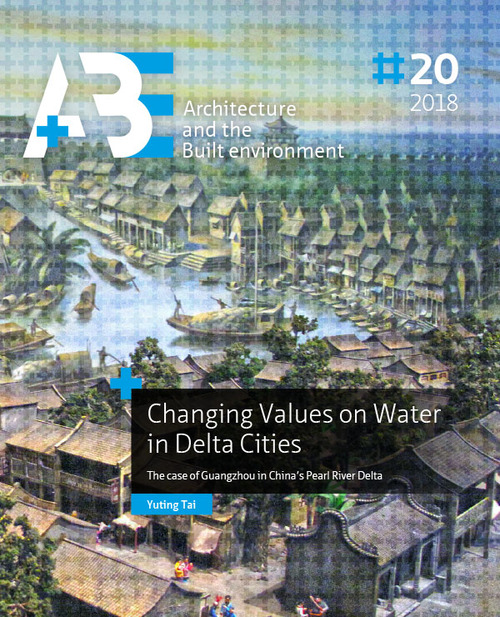Changing Values on Water in Delta Cities
- Studieboek
Analyzing the Relationship between Value Judgements and Spatial TransformationsIn this thesis, a comprehensive analytical framework is developed to explore the link between value theory and planning and design practices. The aim is to investigate how individual and collective value judgements influence context-specific spatial transformations. Specifically, the focus is on understanding the interrelationships between four key... lees meer over dit product
Prijzen gevonden tussen de € 29,95 en € 29,95
Productinformatie
Plus- en minpunten
- Studieboek
Analyzing the Relationship between Value Judgements and Spatial Transformations
In this thesis, a comprehensive analytical framework is developed to explore the link between value theory and planning and design practices. The aim is to investigate how individual and collective value judgements influence context-specific spatial transformations. Specifically, the focus is on understanding the interrelationships between four key aspects of water values: flood safety, economic considerations, social factors, and environmental concerns.
To achieve this, the thesis employs morphological analyses and value assessments to examine the extent to which spatial changes can be seen as an expression of evolving values. By studying these transformations, we can gain valuable insights into dealing with complex spatial situations.
Long-Term Spatial Development and Case Study in Guangzhou
The empirical studies presented in this thesis are based on the long-term spatial development of Guangzhou, a historical and rapidly growing delta city in China. Through this case study, three distinct development stages are examined, each illustrating different patterns of water-city interactions.
Waterways City: A Balance with Natural Forces
The first stage, referred to as the "waterways city," encompasses the period before the 1920s. During this time, the city was primarily shaped by natural forces, including natural waterways. The analysis explores how the city's spatial structure was influenced by these natural elements and the values associated with them.
Functional City: Centralized Management and Flood Defense
The second stage, known as the "functional city," spans the period from the 1920s to the 1970s. During this era, the city underwent highly centralized management, characterized by functional zoning and large-scale flood defense measures. The thesis delves into the relationship between these management approaches and the value judgements they reflect.
Pluralistic City: Accommodating Diverse Water Values
The final stage, termed the "pluralistic city," encompasses the period after the 1970s. During this phase, the city exhibited a tendency to accommodate plural values of water, such as environmental sustainability, social equity, and cultural identity. The thesis explores how these values influenced spatial transformations and the implications for managing complex urban environments.
Overall, this thesis offers a multifaceted examination of the relationship between value judgements and spatial transformations. By understanding how water values shape the built environment, we can make more informed decisions in planning and design to create sustainable and inclusive urban spaces.
Korte specificaties
Afmetingen
| Afmetingen | Afmeting: 23,5 x 19 x 1,5 cm |
| Gewicht | 524 g |
Overig
| Aantal pagina's | 232 pagina's |
| Auteur(s) | |
| Bindwijze | Paperback |
| Boek, ebook of luisterboek? | |
| Druk | 1 |
| Illustraties | Met illustraties |
| Studieboek | |
| Studieboek of algemeen | |
| Taal | |
| Uitgever | |
| Verschijningsdatum | Sep-18 |
Algemeen
| EAN | 9789463660716 |
|---|






